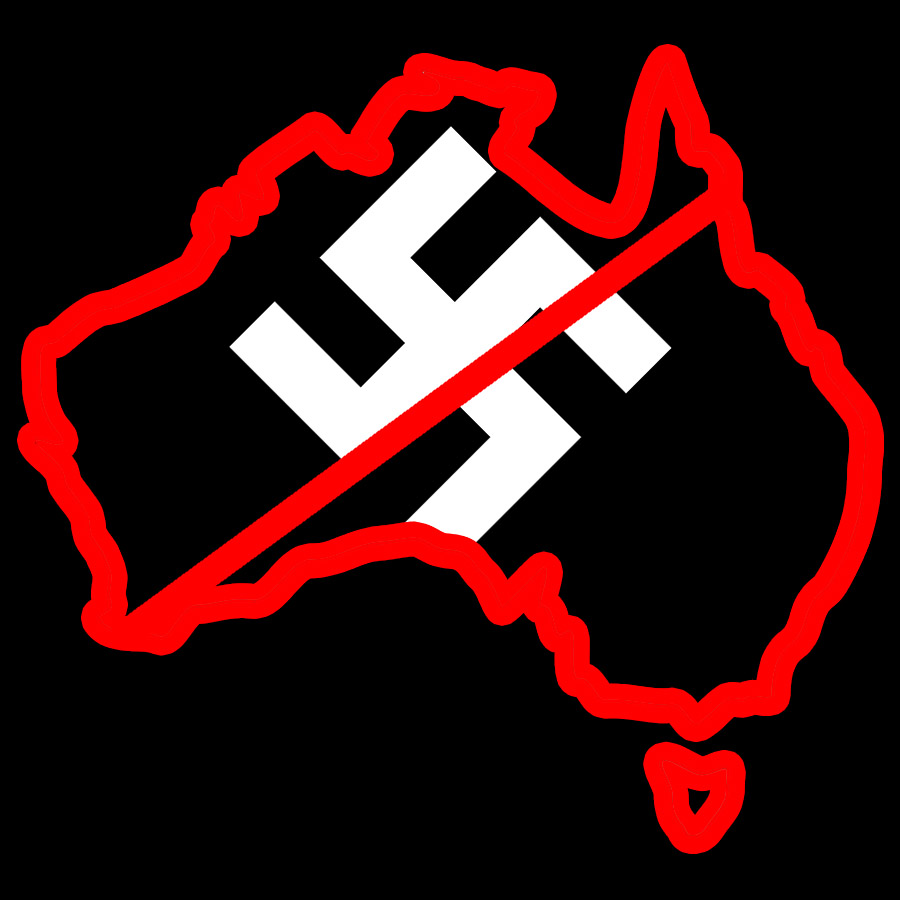
White supremacy is nothing new in Australia, but now that American groups are trying to exploit it, it was time to do something.
Anon.
A bit of historical context for the swastika-ban in the state of Victoria (Australia). The white Australia policy, aka, the immigration restriction act of 1901 was intended to only allow migration to Australia from white European nations, white supremacy by any other name. This policy was officially dead by the 1950’s, with a brief resurgence in the 1990’s thanks to the introduction of “One Nation”, the far-right nationalist party which still holds 2 seats in the senate at the federal level. Admittedly these clowns are not very popular, especially in the southern and eastern states in Australia.
“The Base”, a white supremacy group out of the USA was infiltrated and exposed in Australia in 2021, as Base founder Rinaldo Nazzaro attempted to recruit new members including Dean Smith, who ran for the federal seat of O’Connor as the candidate for One Nation. O’Connor is a Australian electoral division in the state of Western Australia., one of Western Australia’s three rural seats, as well as being one of the largest electoral constituencies in the world.
In a recorded phone call with Nazzaro, Smith stated that he had distanced himself from the party because they were “race mixers”. Racism is older than Australia and was brought here with the first boats of English captains and crews, transporting unwanted poor people and bread thieves, as Australia was settled as a prison colony back in the days when the US was a collection of 13 colonies.
Brenton Tarrant, the Australian white supremacy terrorist who carried out the attacks in Christchurch, New Zealand in March of 2019, has inspired more terrorist acts with his manifesto of hate, such as the Buffalo shooter who quoted this fool in his own manifesto. Politicians in Australia have also been inspired, but not like that, they now want to go on the
offensive, making it a criminal offence to display the Nazi swastika. In the state of Victoria on the 21’st of June 2022, the Premier of the state (the equivalent of a governor in the USA), Mr Dan Andrews tweeted “In our state, nobody has the right to spread racism, hate or antisemitism. Ever. That’s why last night we passed legislation to ban
the Nazi symbol. And now, it’s the law”. Jaclyn Symes, Attorney-general for the state of Victoria, and minister for emergency services stated in a press release Tuesday “The Nazi symbol glorifies one of the most hateful ideologies in history, it’s public display does nothing but cause further pain and division. “It’s a proud moment to see these important laws pass with bipartisan support – I’m glad to see that no matter what side of politics, we can agree that this vile behaviour will not be tolerated in Victoria” The penalty for displaying the Nazi swastika includes a $22,000 fine, and or 12 months in prison.
The legal differences between the United States and Australia need to be acknowledged when we are talking about free speech. We do have free speech in Australia, as all true democracies do, though it is not considered absolute in the face of hate speech, threats, lies and so on. Brandenburg v Ohio, the supreme court in the United States has protected racist speech under the first amendment, while countries like Germany and Australia have managed a more nuanced approach. Free speech and anti-hate speech laws can coexist when constitutional law places human dignity above free speech in an overt hierarchy of values according to Ronald Krotoszynski Jr. (2004-2005) professor of law at Washington and Lee university school of law. The American supreme court’s interpretation of the first amendment is why the German and Australian models are inadequate for the United States to follow.
It is important to acknowledge that the symbol we think of as the Nazi swastika, also has a much longer history with a different meaning for the Buddhist, Hindu, Jain and other religious traditions where it is a symbol of peace and good fortune. The Victorian government has taken this into account as the law differentiates between the two meanings, and the context of the symbols display is what determines its legality. Since last Tuesday when the ban was announced, three Australian states, New South Wales, Queensland and Tasmania are all considering following Victoria in banning the swastika.
Sources: SBS news (AUS), Premier.gov.vic.au, ABC news (AUS)
Ronald J. Krotoszynski, Jr. (2003-2004). A Comparative Perspective on the First
Amendment: Free Speech, Militant Democracy, and the Primacy of Dignity as a Preferred
Constitutional Value in Germany. Heinonline.org


More Stories
Daryle Lamont Jenkins on BTV Channel 17
Epona Rose Speaks out
The Brawl in BTV